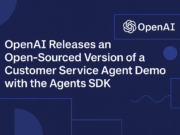
GUEST POST from Greg Satell
After I lived in Poland, it was widespread to say that “life is merciless, and filled with traps.” From an American perspective, the aphorism could be a little bit of a tradition shock. We’re raised to imagine within the energy of positivity, the American dream and the can-do spirit. Negativity might be seen as one thing worse than a weak spot, each an indulgence and a privation on the similar time.
Over time, nevertheless, I got here to respect the Poles’ innate suspicion. The reality is that we’re far too simply fooled and brought in by these prey on the glitches in our cognitive equipment. Generally those peddling bunk have fooled additionally themselves. Their claims appear to be supported by logic and proof, however their guarantees by no means fairly pan out.
We’re taken in as a result of we would like their claims to be true. We’d prefer to suppose that there’s a secret we’re lacking, that there’s a black magic that we’re not aware of and, if we show our value and procure entry to some easy truths, we’ll seize the success that eludes us. But these frauds observe widespread patterns and there are telltale indicators we are able to be taught to identify.
1. The Survivorship Bias Trick
In 2005 W. Chan Kim and Renée Mauborgne, each distinguished professors at INSEAD, revealed Blue Ocean Technique. Of their examine of 108 firms the authors discovered that “blue ocean” launches, these in new classes with out competitors, far outperformed the shark-infested “pink ocean” line extensions which are the norm within the company world. It was a right away hit, promoting over 3.5 million copies.
Bain consultants Chris Zook and James Allen’ guide, Revenue from the Core, boasted much more intensive analysis encompassing 200 case research, a database of 1,854 firms, 100 interviews of senior executives and an “intensive assessment” of current literature. They discovered that corporations that centered on their ”core” far outperformed those that strayed.
It doesn’t take an excessive amount of pondering to start out seeing issues. How will you each “focus in your core” and hunt down “blue oceans”? It betrays logic that each methods may outperform each other. Additionally, how do you outline “core?” Core markets? Core capabilities? Core prospects? Whereas it’s true that “blue ocean” markets lack rivals, they don’t have any prospects both. Who do you promote to?
But there’s an excellent greater, extra insidious drawback and it’s a trick that hucksters, gurus and consultants commonly make use of to falsely set up doubtful claims. It’s referred to as survivorship bias. Discover how “analysis” doesn’t embrace corporations that went out of enterprise as a result of there have been no prospects in these “blue oceans” or as a result of they didn’t diversify outdoors of their “core.” The information solely pertains to those that survived.
Are you able to think about a medical researcher failing to incorporate the outcomes of sufferers that died? Or an airplane designer forgetting to say the prototypes that crashed? But hucksters, gurus and consultants get away with it on a regular basis.
2. Dressing Up Social Proof As “Analysis”
One other trick hucksters, gurus and consultants use is to decorate up social proof as analysis with a view to improve their credibility as specialists and set up a necessity for his or her companies. They are saying, for instance, that they discover firm profitability is strongly correlated with a buyer focus or that tradition has a statistically highly effective impact on efficiency.
At first look, these claims appear cheap, however as Phil Rosenzweig defined in The Halo Impact, it’s all a part of a refined bait and change. What’s being “researched” isn’t actually “buyer focus” or “tradition,” however perceptions about these issues in responses to a survey. So it’s extremely doubtless that profitable firms are merely being perceived as having these traits.
For instance, in 2000, earlier than the dotcom crash, Cisco was flying excessive. A profile in Fortune reported it to have an unparalleled tradition with extremely motivated workers. However only one 12 months later, when the market tanked, the exact same publication described it as “cocksure” and “naive.” Did the “tradition” actually change that a lot in a 12 months, with the identical management?
Some would possibly say that it’s “apparent” {that a} sturdy tradition and buyer focus contribute to efficiency, however then why undergo the entire kabuki dance of “analysis?” Why not simply say, “should you imagine these items are essential, we will help you with them?” It’s onerous to keep away from the conclusion that their is both an intent to deceive or simply pure incompetence.
You don’t need to look far to see that that is an ongoing con. A couple of fast Google searches led me to main consulting corporations presently promoting halo results as causal relationships to trusting prospects right here and right here.
3. The VUCA World
At present it’s turn out to be an article of religion that we dwell in a VUCA world (Risky, Unsure, Complicated and Ambiguous). Enterprise pundits inform us that we should “innovate or die.” These are taken as primary truths which are past questioning or reproach. Those that doubt the necessity for change danger being dismissed as out of contact.
The information, nevertheless, inform a really completely different story. A report from the OECD discovered that markets, particularly in america, have turn out to be extra concentrated and fewer aggressive, with much less churn amongst business leaders. The variety of younger corporations have decreased markedly as nicely, falling from roughly half of the whole variety of firms in 1982 to 1 third in 2013.
A complete 2019 examine from the Nationwide Bureau of Financial Analysis discovered two correlated, however countervailing tendencies: the rise of “celebrity” corporations and the autumn of labor’s share of GDP. Primarily, the everyday business has fewer, however bigger gamers. Their elevated bargaining energy results in extra earnings, however decrease wages.
The reality is that we don’t actually disrupt industries anymore. We disrupt individuals. Financial information exhibits that for many People, actual wages have hardly budged since 1964. Revenue and wealth inequality stay at historic highs. Anxiousness and despair, already at epidemic ranges, worsened throughout the Covid-19 pandemic.
So why do hucksters, gurus and consultants insist that industries are underneath fixed menace of disruption?
4. The Attract Of Pseudoscience
In Richard Feynman’s 1974 graduation speech at Cal-Tech, he recounted going to a new-age resort the place individuals had been studying reflexology. A person was sitting in a scorching tub rubbing a lady’s large toe and asking the teacher, “Is that this the pituitary?” Unable to comprise himself, the good physicist blurted out, “You’re a hell of a good distance from the pituitary, man!”
His level was that it’s comparatively straightforward to make one thing seem “scientific” by, for instance, having individuals put on white coats or current charts and tables, however that doesn’t actually make it science. True science is testable and falsifiable. We will’t merely state what you imagine to be true, however should give others a way to check it and show us fallacious.
That is essential as a result of it’s very straightforward for issues to seem like the reality, however truly be false. That’s why we should be cautious, particularly when it’s one thing we already imagine in. The burden is even higher when it’s an concept that we need to be true. That’s when we have to redouble our efforts, dig in and ensure we confirm our details.
Hucksters, gurus and consultants like to prey on our weak spot for authority by saying that “the science says…” The reality is that science doesn’t “say”something, it merely produces hypotheses that haven’t been disproven but. Some, like Darwin’s principle of pure choice, have been round a very long time, so we’re fairly certain that they’re true, however even in that case a big a part of it was debunked inside months. The ‘principle” as we all know it now’s what survived.
There aren’t any absolute solutions. There’s, as Sam Arbesman has put it, a half lifetime of details. We will solely make choices on greater or decrease ranges of confidence. In the actual world, there aren’t any “certain issues,” and don’t let hucksters, gurus and consultants let you know any completely different.
— Article courtesy of the Digital Tonto weblog
— Picture credit: Pexels
![]() Join right here to affix 17,000+ leaders getting Human-Centered Change & Innovation Weekly delivered to their inbox each week.
Join right here to affix 17,000+ leaders getting Human-Centered Change & Innovation Weekly delivered to their inbox each week.



















![Diablo 4 Mod Apk Newest Model [Unlimited Excitement]](https://digibytetoday.com/wp-content/uploads/2025/06/1750344127_1-final-180x135.jpg)
















